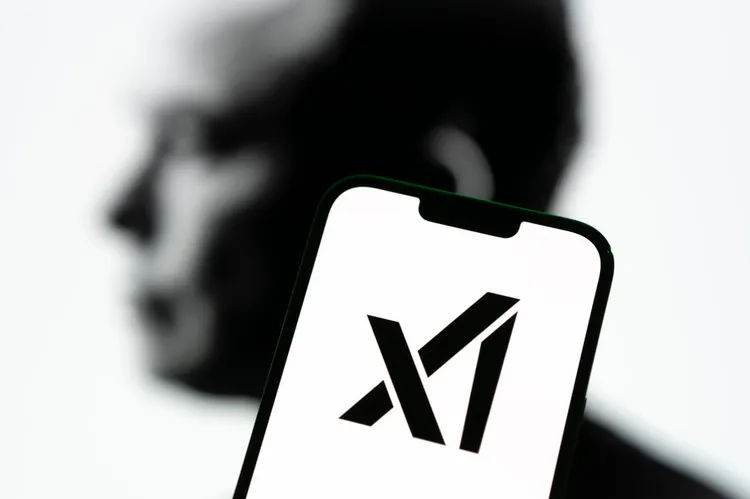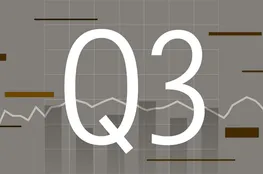Elon Musk’s ambitious new artificial intelligence company, xAI, is poised to secure a significant $5 billion in debt financing, despite a less-than-enthusiastic response from investors. This financing round, spearheaded by Morgan Stanley, is slated to close on Wednesday and will comprise a floating-rate term loan, a fixed-rate loan, and secured bonds. The details reveal a complex situation, highlighting the challenges xAI faces in attracting investment given its nascent stage and lack of established credit ratings. The $5 billion debt offering represents a substantial commitment, yet investor demand was notably subdued. Initial reports indicated that investors submitted orders approximately 1.5 times the amount of debt available, a lower multiple than typically observed in comparable high-yield and leveraged loan transactions – usually between 2.5 and 3 times. This suggests a cautious approach from the market, reflecting concerns about xAI’s financial health and the inherent risks associated with a venture led by Elon Musk. Crucially, the debt is not rated, meaning there’s limited public data to assess xAI’s financial standing, further contributing to investor hesitancy. Several bond investors who were offered the debt declined to participate, citing the company’s lack of profitability and the absence of a credit rating. This situation echoes Musk’s previous financing efforts, most notably his $44 billion acquisition of Twitter (formerly known as X) in 2022, where similar challenges arose. The banks involved in that deal were forced to hold the debt on their balance sheets for two years, unable to find buyers, illustrating the difficulties in offloading such large, unrated loans. Morgan Stanley is handling this transaction on a "best efforts" basis, meaning they’re obligated to sell the debt but aren’t guaranteeing a specific amount or committing their own capital, a strategy that contrasts with the guarantees provided during the Twitter acquisition. This approach adds another layer of uncertainty for investors.
The banks involved in that deal were forced to hold the debt on their balance sheets for two years, unable to find buyers, illustrating the difficulties in offloading such large, unrated loans. Morgan Stanley is handling this transaction on a "best efforts" basis, meaning they’re obligated to sell the debt but aren’t guaranteeing a specific amount or committing their own capital, a strategy that contrasts with the guarantees provided during the Twitter acquisition. This approach adds another layer of uncertainty for investors. The details reveal a complex situation, highlighting the challenges xAI faces in attracting investment given its nascent stage and lack of established credit ratings. The $5 billion debt offering represents a substantial commitment, yet investor demand was notably subdued. Initial reports indicated that investors submitted orders approximately 1.5 times the amount of debt available, a lower multiple than typically observed in comparable high-yield and leveraged loan transactions – usually between 2.5 and 3 times. This suggests a cautious approach from the market, reflecting concerns about xAI’s financial health and the inherent risks associated with a venture led by Elon Musk. Crucially, the debt is not rated, meaning there’s limited public data to assess xAI’s financial standing, further contributing to investor hesitancy. Several bond investors who were offered the debt declined to participate, citing the company’s lack of profitability and the absence of a credit rating. The $5 billion debt offering represents a substantial commitment, yet investor demand was notably subdued. Initial reports indicated that investors submitted orders approximately 1.5 times the amount of debt available, a lower multiple than typically observed in comparable high-yield and leveraged loan transactions – usually between 2.5 and 3 times. This suggests a cautious approach from the market, reflecting concerns about xAI’s financial health and the inherent risks associated with a venture led by Elon Musk.
The banks involved in that deal were forced to hold the debt on their balance sheets for two years, unable to find buyers, illustrating the difficulties in offloading such large, unrated loans. Morgan Stanley is handling this transaction on a "best efforts" basis, meaning they’re obligated to sell the debt but aren’t guaranteeing a specific amount or committing their own capital, a strategy that contrasts with the guarantees provided during the Twitter acquisition. This approach adds another layer of uncertainty for investors. The details reveal a complex situation, highlighting the challenges xAI faces in attracting investment given its nascent stage and lack of established credit ratings. The $5 billion debt offering represents a substantial commitment, yet investor demand was notably subdued. Initial reports indicated that investors submitted orders approximately 1.5 times the amount of debt available, a lower multiple than typically observed in comparable high-yield and leveraged loan transactions – usually between 2.5 and 3 times. This suggests a cautious approach from the market, reflecting concerns about xAI’s financial health and the inherent risks associated with a venture led by Elon Musk. Crucially, the debt is not rated, meaning there’s limited public data to assess xAI’s financial standing, further contributing to investor hesitancy. Several bond investors who were offered the debt declined to participate, citing the company’s lack of profitability and the absence of a credit rating. The $5 billion debt offering represents a substantial commitment, yet investor demand was notably subdued. Initial reports indicated that investors submitted orders approximately 1.5 times the amount of debt available, a lower multiple than typically observed in comparable high-yield and leveraged loan transactions – usually between 2.5 and 3 times. This suggests a cautious approach from the market, reflecting concerns about xAI’s financial health and the inherent risks associated with a venture led by Elon Musk.
The banks involved in that deal were forced to hold the debt on their balance sheets for two years, unable to find buyers, illustrating the difficulties in offloading such large, unrated loans. Morgan Stanley is handling this transaction on a "best efforts" basis, meaning they’re obligated to sell the debt but aren’t guaranteeing a specific amount or committing their own capital, a strategy that contrasts with the guarantees provided during the Twitter acquisition. This approach adds another layer of uncertainty for investors. The details reveal a complex situation, highlighting the challenges xAI faces in attracting investment given its nascent stage and lack of established credit ratings. The $5 billion debt offering represents a substantial commitment, yet investor demand was notably subdued. Initial reports indicated that investors submitted orders approximately 1.5 times the amount of debt available, a lower multiple than typically observed in comparable high-yield and leveraged loan transactions – usually between 2.5 and 3 times. This suggests a cautious approach from the market, reflecting concerns about xAI’s financial health and the inherent risks associated with a venture led by Elon Musk. Crucially, the debt is not rated, meaning there’s limited public data to assess xAI’s financial standing, further contributing to investor hesitancy. Several bond investors who were offered the debt declined to participate, citing the company’s lack of profitability and the absence of a credit rating. The $5 billion debt offering represents a substantial commitment, yet investor demand was notably subdued. Initial reports indicated that investors submitted orders approximately 1.5 times the amount of debt available, a lower multiple than typically observed in comparable high-yield and leveraged loan transactions – usually between 2.5 and 3 times. This suggests a cautious approach from the market, reflecting concerns about xAI’s financial health and the inherent risks associated with a venture led by Elon Musk.
The banks involved in that deal were forced to hold the debt on their balance sheets for two years, unable to find buyers, illustrating the difficulties in offloading such large, unrated loans. Morgan Stanley is handling this transaction on a "best efforts" basis, meaning they’re obligated to sell the debt but aren’t guaranteeing a specific amount or committing their own capital, a strategy that contrasts with the guarantees provided during the Twitter acquisition. This approach adds another layer of uncertainty for investors. The details reveal a complex situation, highlighting the challenges xAI faces in attracting investment given its nascent stage and lack of established credit ratings. The $5 billion debt offering represents a substantial commitment, yet investor demand was notably subdued. Initial reports indicated that investors submitted orders approximately 1.5 times the amount of debt available, a lower multiple than typically observed in comparable high-yield and leveraged loan transactions – usually between 2.5 and 3 times. This suggests a cautious approach from the market, reflecting concerns about xAI’s financial health and the inherent risks associated with a venture led by Elon Musk. Crucially, the debt is not rated, meaning there’s limited public data to assess xAI’s financial standing, further contributing to investor hesitancy. Several bond investors who were offered the debt declined to participate, citing the company’s lack of profitability and the absence of a credit rating. The $5 billion debt offering represents a substantial commitment, yet investor demand was notably subdued. Initial reports indicated that investors submitted orders approximately 1.5 times the amount of debt available, a lower multiple than typically observed in comparable high-yield and leveraged loan transactions – usually between 2.5 and 3 times. This suggests a cautious approach from the market, reflecting concerns about xAI’s financial health and the inherent risks associated with a venture led by Elon Musk.
























